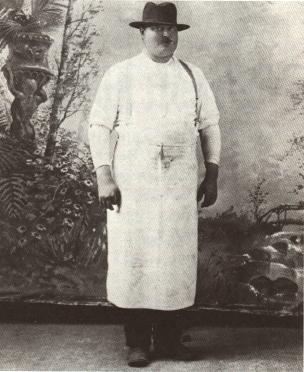| The men returned to upstate New York for their wives
and children, and thus word spread particularly among the German community
there. Many other Germans arrived in the decade that followed, and these
newest members of Ann Arbor found solace in their shared tongue. After
first participating in services with other local Protestants, the German
settlers in and around Ann Arbor desired to have a worship service that
they could call their own. The First German Evangelical Society of Scio
was established when Ann Arborite Jonathan Henry Mann wrote to the Evangelical
Missionary Institute of Basel, Switzerland, for a German-speaking minister
(Stephenson, p.89.) Frederick Schmid's arrival was a triumph for the German
people, who had fled mandatory military service and ethnic persecution
from the French and Austrians (ibid., pp. 82-88.) In 1833, the German community
established the first religious assembly house where they could worship freely in their new American homeland.
Although their desire for a separate German worship temporarily divided
Ann Arbor's spiritual unity, the once-persecuted Germans were avid supporters
of the Union in the Civil War, and the townspeople admired their courage
in the war effort (Stephenson, pp.88-97.) |

